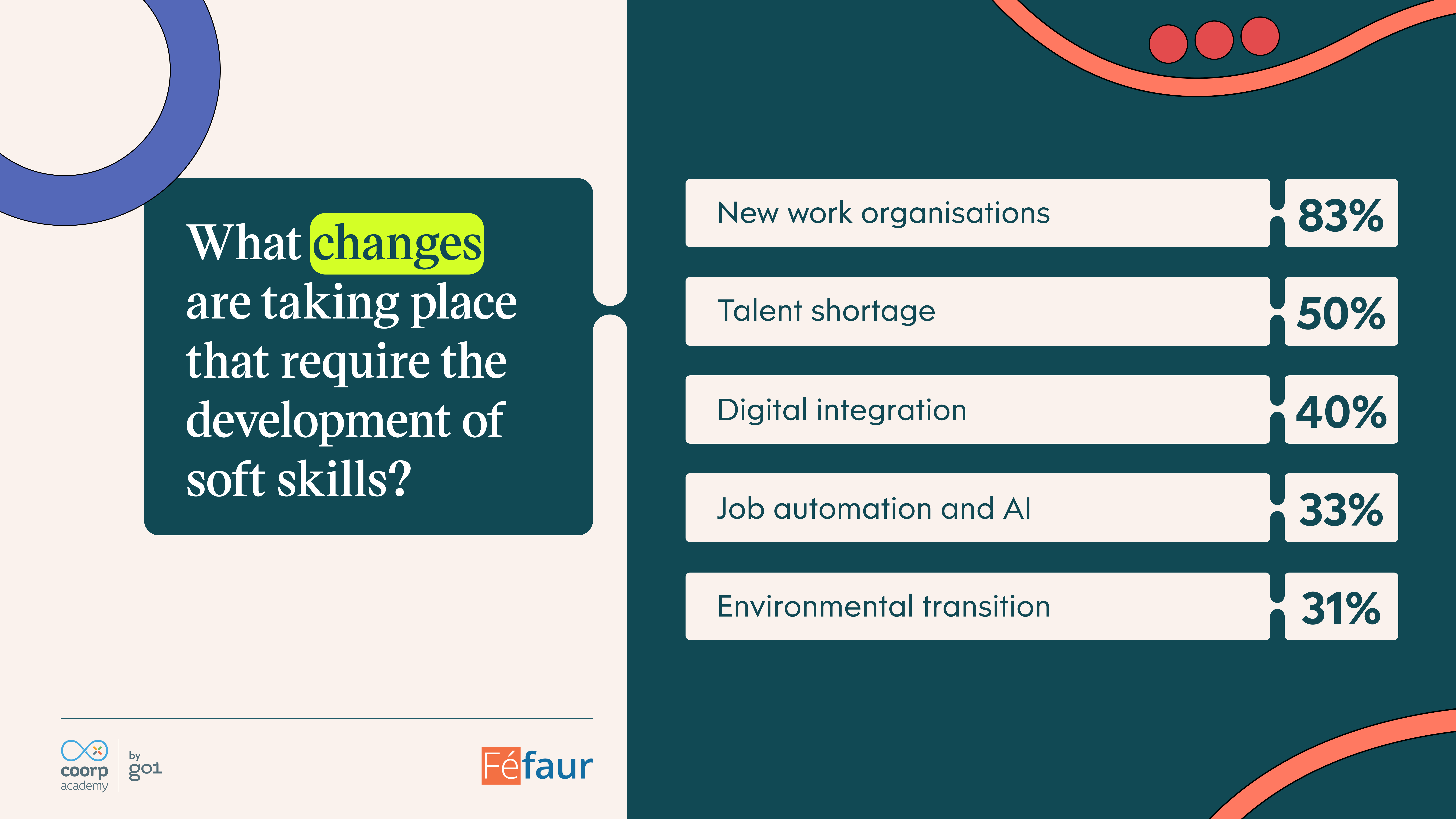Labour shortage: training as a crucial tool for recovery
Learning Innovation

As the economic recovery is confirmed, we are already witnessing the consequences of the pandemic on the labour market. Faced with the reopening, many companies are facing a shortage of skilled labour. According to the Dares, The French Directorate for Research, Studies and Statistics, although the job market has picked up again since the end of the health crisis, many positions remain vacant due to a lack of candidates. This problem therefore raises a training issue for organisations if they wish to participate in this revival of activity.
“Last year we provided 35,000 training courses. We would like to increase this year to 45,000 to help the working population find the right job.”
In response to the difficulties in finding workers, Frank Ribuot, President of Randstad France, explained in a BFM Business interview on 25 June 2021 that employers are forced to “recruit less experienced staff or staff from another sector“. Training is an essential pillar for overcoming this obstacle to recovery, as it will allow for the effective training of a workforce that may be less qualified, but which is ready to quickly upgrade its skills.
According to Alain Griset, Minister for Small and Medium-sized Enterprises, “Labour shortages were the number one concern of entrepreneurs before the crisis – it is now the sustainability of their activity – and this issue is coming back strongly with the recovery of activity“. SMEs would therefore be even more affected by these difficulties. Nevertheless, all sectors are experiencing recruitment difficulties, particularly in the construction sector, in personal services such as cleaning or assistance to the elderly, in the digital sector and also in certain industrial sectors, according to François Asselin, President of the CPME, the Confederation of Small and Medium-sized Enterprises. Thus, the construction trades (carpenters, roofers) and the health and social action trades (doctors, home helps, domestic helpers) are the trades most affected by the shortage, according to the Pôle Emploi “Labour Needs” Survey 2021.
Around the world, the phenomenon is becoming more pronounced. In early June in the United States, the US Federal Reserve Bank (Fed) warned that companies were struggling to hire enough people to meet demand.
“It is difficult for many companies to hire new workers, especially low hourly wage workers, drivers (…) and skilled sales people. The lack of job applicants has prevented some companies from increasing their production, sometimes even forcing them to reduce their opening hours.
In Germany, same observation. In a KfW Research study analysing the current skills shortage and how it could develop up to 2040, Dr Fritzi Köhler-Geib, Chief Economist of KfW Bankengruppe – one of the country’s top 15 banks – explains:
“The German economy can respond to the skills shortage and low productivity mainly through more investment, innovation, training and qualification measures. Our economy also needs these ingredients to overcome the coronavirus crisis and its consequences as quickly as possible. We therefore need a long-term growth and investment initiative from the public and private sectors for the coming years – not only in Germany but also in Europe. The main areas of action are crisis resilience, climate action and productivity growth through innovation and digitalisation.”
And in Quebec, the labour shortage is reaching new heights. According to Statistics Canada, the number of vacant positions in Quebec has increased by 18,500 (+14.4%) compared to a year earlier. One of the most affected sectors is the construction industry. Just over one-third (33.8%) of construction companies reported difficulty recruiting and retaining qualified employees, according to the Canadian Business Situation Survey. As a result, Quebec businesses continue to adapt to the COVID-19 pandemic and plan to invest in e-learning on an ongoing basis in the future, according to the Quebec Business Expectations Survey for the second quarter of 2021.
As we can see, the challenge of this recovery lies in increasing the skills and adaptability of companies and workers. It is clear that the available talent is scarce in most sectors. But this difficult period can also be an opportunity. The opportunity to invest in the development of skills, on an ongoing basis, to better deal with this problem in the future. Training is therefore a remedy for the shortage of skilled labour, and can also accompany the various transformations of companies at the same time. The challenge is to plan for the needs, to understand the issues and therefore to prepare for them. It is by identifying in advance the skills that will be crucial in the future that companies will be able to initiate change and face the next difficulties. It is therefore a real training strategy that organisations must put in place to promote the recovery of activity and overcome the current labour shortage. Human resources must initiate a real reflection on the talent available and the talent required, in order to put in place strategic training plans that meet the new needs: accessible at a distance, innovative and varied formats, features to engage learners and hold their attention, etc.
Labour shortages do not mean worker shortages. All employees are capable of upgrading their skills, learning, and evolving. What we are really witnessing is a shortage of qualified skills within the pool of potential workers. Of course, some will say that this is an optimistic way of looking at the problem. But we are convinced that it is by believing in the potential of workers and providing them with the tools for success that companies will be able to overcome all the current and future challenges.


